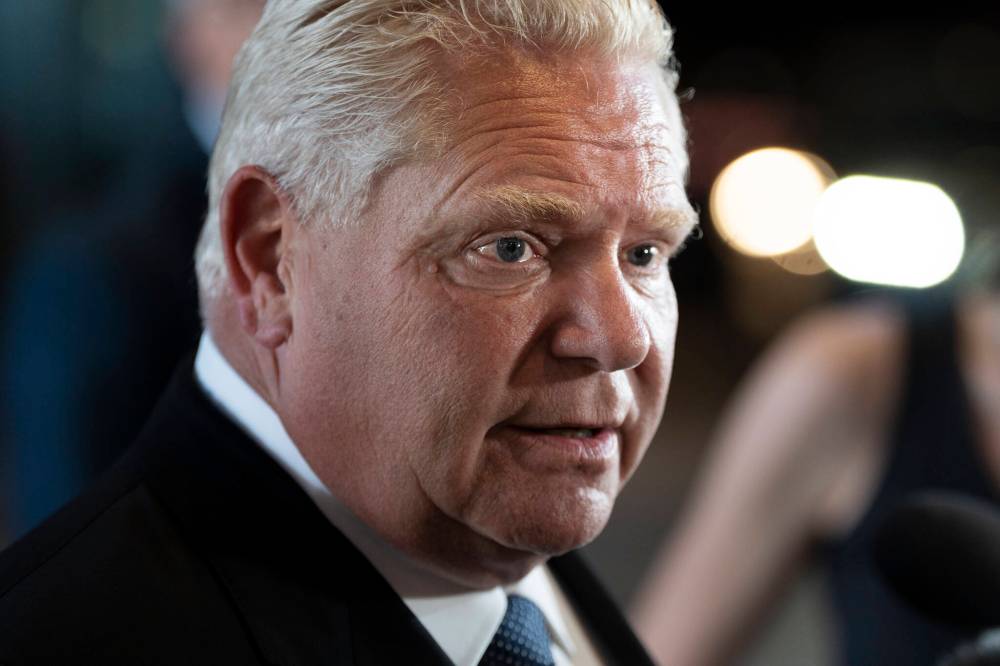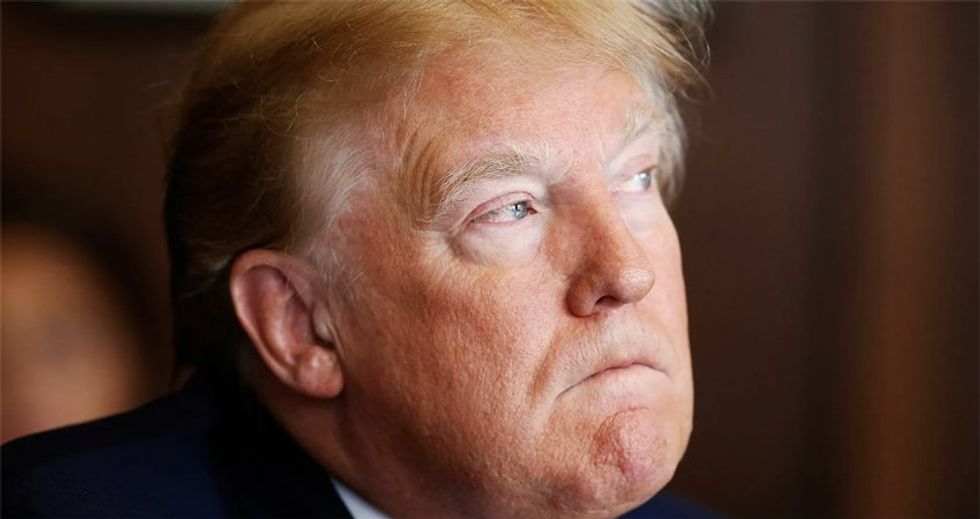
Under the threat of a punishing tariff increase by the incoming U.S. president, Canada’s federal and provincial leaders seem to be united on the idea that it is time to play hardball.
Read this article for free: Already have an account? To continue reading, please subscribe: * Under the threat of a punishing tariff increase by the incoming U.S. president, Canada’s federal and provincial leaders seem to be united on the idea that it is time to play hardball.

Read unlimited articles for free today: Already have an account? Opinion Under the threat of a punishing tariff increase by the incoming U.S. president, Canada’s federal and provincial leaders seem to be united on the idea that it is time to play hardball.
Following U.S. president-elect Donald Trump’s vow to impose a 25 per cent import tax on Canadian goods, Ottawa is readying its own retaliatory tariffs.
That much had already been floated. What is more interesting, however, is vows by Ontario Premier Doug Ford to cut off the electricity his province provides to the U.S.
THE CANADIAN PRESS Ontario Premier Doug Ford Ford’s move is one his fellow premiers should note. Energy trade goes both ways between the two countries — Energy Canada notes that each province along the U.S.
border is electrically connected to “at least one neighbouring U.S. state.
” Generally, though, the power flows south: the U.S. Energy Information Administration notes that, while that cross-border trade has balanced out in recent years owing to reduced hydroelectric generation, Canada has exported much more than it has brought in for the past two decades.
And the power we send south is increasingly important to the U.S. North American electrical grids stateside have been struggling to keep up with demand.
According to an NBC News report in February this year, cold snaps have led to blackouts or shutoffs in parts of the country for five of the past 11 years. The report cites experts who claim the failures are partly driven by shortages of natural gas, upon which the U.S.
electrical grid relies as a main source of power. Natural gas is not a renewable resource, which means its supply is only going to get shorter over time. As such, it will become necessary for the U.
S. to both develop new sources of electricity and also rely on imports. Ontario, according to a Fox 2 Detroit report responding to Ford’s promise, provides power to 1.
5 million American homes. And Ontario isn’t the only province keeping American lights on — Manitoba Hydro exports power to American utilities, as do British Columbia, Quebec and the Atlantic provinces. Quebec and the province of Newfoundland and Labrador launched a memorandum of understanding on Thursday to build a set of massive new hydroelectric generation systems — and the U.
S. market is a key customer. If Ford followed through on his words, along with other premiers whose provinces send power stateside, the results would be immediate and painful — for American homeowners, for businesses and for utility operators.
It is, frankly, not the sort of thing good neighbours do to each other. Winnipeg Jets Game Days On Winnipeg Jets game days, hockey writers Mike McIntyre and Ken Wiebe send news, notes and quotes from the morning skate, as well as injury updates and lineup decisions. Arrives a few hours prior to puck drop.
But that’s why it makes for a good threat against Trump. Trump has responded nonchalantly when asked about Ford’s promise, but that is to be expected. He does need to be reminded that the U.
S. relies on its neighbours for more than he realizes, and that the withholding of the resources Canada sends south — especially ones as crucial as electricity — will be too acutely painful to withstand for long. Tariff wars are one thing, but they’re unlikely to communicate to everyday Americans the kind of situation Trump has created.
A power outage for millions on Jan. 21 would send the message loud and clear. Trump, as has been noted, is a bully.
But the thing to do with a bully is not to acquiesce, but to stand one’s ground and be prepared to battle it out. If Ottawa and the premiers do that, up to and including being prepared to hit the “off” switch on wide swaths of the continental U.S.
, Trump’s inner circle will likely have him standing down before it ever comes to that. Advertisement Advertisement.










